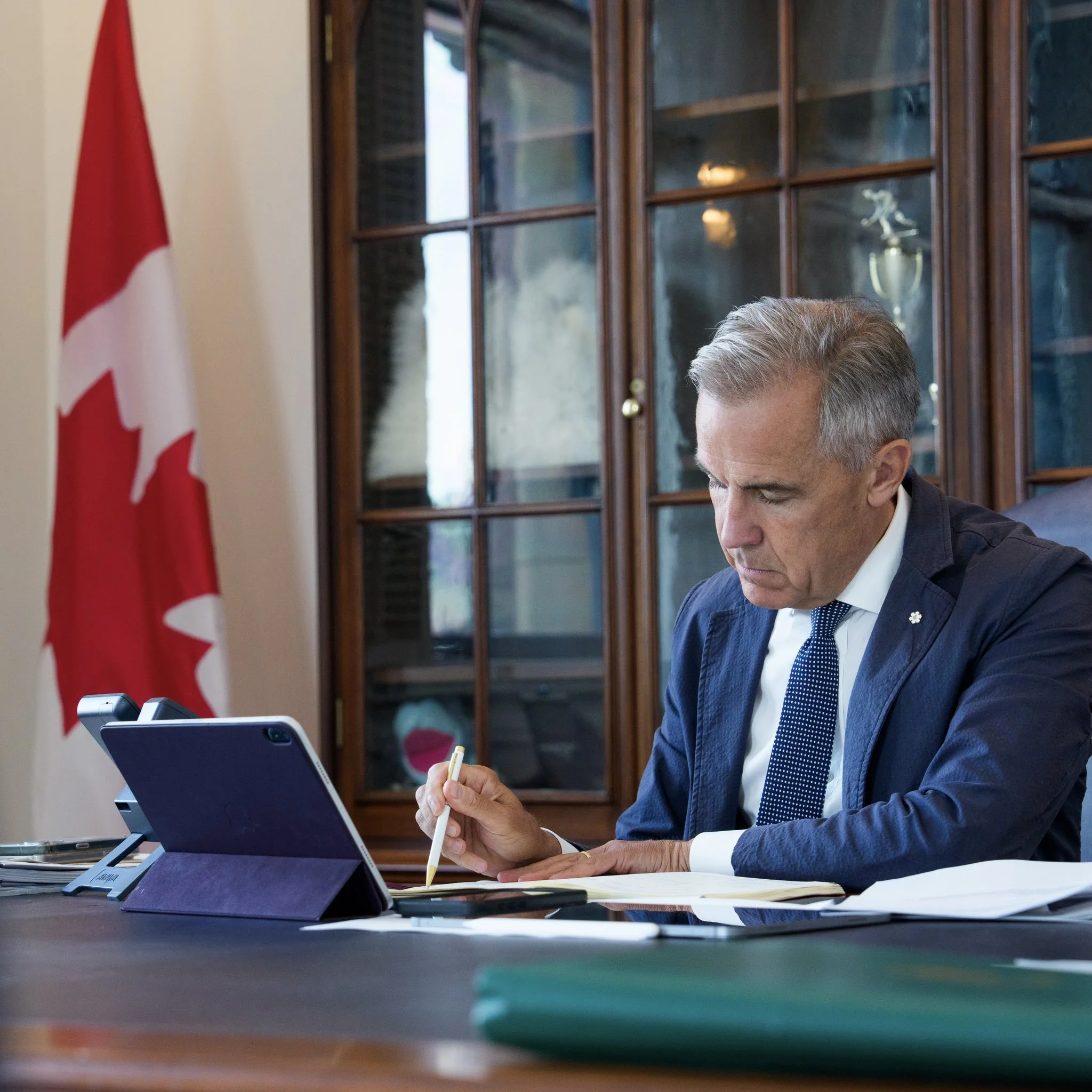Indigenous leaders far from unanimous on Carney plan
‘We call on Canada to host a similar meeting a year from now…It is important Canada works with First Nations leadership from coast to coast to coast,’ AFN National Chief Cindy Woodhouse Nepinak said after the meeting with Prime Minister Mark Carney. / TWITTER PHOTO
Prime Minister Mark Carney’s hopes of fast-tracking nation-building projects in the face of U.S. trade threats ran into early opposition from some First Nations chiefs invited to discuss the Liberals’ enabling legislation.
Carney gathered hundreds of Indigenous leaders at a meeting in Gatineau, Que. on Thursday to promote the possible economic benefits for their communities of Bill C-5, the recently passed Building Canada Act. It will streamline the approval process for energy and other infrastructure projects deemed in the “national interest.”
“The economic value of these projects will be shared with First Nations as partners; it will help build the prosperity of your communities for generations to come,” Carney said as he began the meeting.
The reaction from First Nations leaders, who had been raising questions about C-5 since its introduction, was mixed. Some expressed cautious optimism that it could prove an economic boon, while many slammed it as a power-grab that tramples on the rights of Indigenous people.
In comments echoed by some other First Nations participants, Chief Vernon Watchmaker from Kehewin Cree Nation in Alberta said, “Bill C-5 centralizes power in Ottawa, lets cabinet override environmental laws, ignores treaty and inherent rights.
‘Not engagement’
“That is not modernization, it is colonization in 2025,” he said in a news conference.
“I don't even know what this is, but this is not engagement. This is definitely not consultation. I'm speechless," Mohawk Council of Kahnawake Grand Chief Cody Diabo said after leaving the meeting early.
Many chiefs said the meeting was badly organized and appeared to be an attempt by the government to enlist the support of those who favour Carney’s plan to move quickly to unleash energy and trade infrastructure construction across the country. There were also complaints that the government passed Bill C-5 with little consultation with First Nations whose rights and territory could be affected by the legislation.
But some said the meeting was useful. “He took time out to meet with all the chiefs,” Pilkani Nation Chief Troy Knowlton told CBC. “Ever the optimist, that’s what I look at — how’s it going to advance the First Nations.”
In a closing statement, Carney clarified his interpretation of the meeting, recorded by a chief participating in the summit who provided it to Canadian Press and other news outlets. “This was never a consultation. This was not a consultation today. This is engagement,” the prime minister said.
Carney went on to say that once consultations start on specific projects, the continuing process of consultation will result in shared prosperity and a gradual rebuilding of trust between the government and First Nations.
In a press release, Carney announced measures to ensure projects were built in partnership with Indigenous Peoples, including:
Creating an Indigenous Advisory Council with representation from First Nations, Inuit, Métis, as well as Modern Treaty and Self-Government representatives. The council will work closely with the Major Federal Projects Office and “ensure Indigenous perspectives and priorities are integrated at each stage.”
Dedicating $40 million in funding for Indigenous participation.
Doubling the Indigenous Loan Guarantee Program to $10 billion to help unlock capital for Indigenous communities.
Carney told chiefs he hopes to have the federal Major Projects Office, which will lead work on streamlining developments, and its associated Indigenous Advisory Council, in place by Labour Day.
First Nations have been expressing concerns about the independence of that body and have said they want a say in who is appointed.






